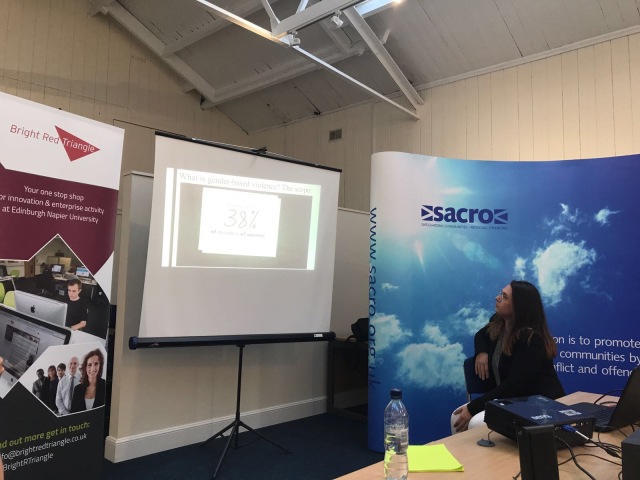43 years ago, there was a girl born into this world under the heat of the Sudanese sun. She was born like most girls are born into this world – two arms, two legs, a healthy beating heart, and shrieking, reassuringly, when air first expanded her tiny lungs. This little girl’s mother must have frantically checked that little new born body a thousand times in those first minutes, as mothers do. I can imagine her breathing a sigh of relief when she finds her girl with all ten fingers and toes. For being a girl is enough trouble. But not as much trouble as it is for sonless households – little Aisha was born with an older brother. In those first minutes of Aisha’s life, 43 years ago, when worries fled out of respect, I imagine Aisha’s mother’s heart uttered Alhamdulilllah.
Little Aisha grew healthily into a happy toddler. But not before she and her family left the Sudanese sun behind for the Saudi Arabian sun. Life for Aisha continued on in Saudi Arabia much as it did in Sudan. The world turns, in those early years of life, somehow both achingly slow and blindingly fast. It’s a frustrating contradiction we must all bear at that age. Playtime is too short, punishment too long – there are not enough bananas and too much liver. In this precious innocence Aisha explored the world around her and grew into a precocious toddler, a daddy’s girl. She would tell you now, ‘I was happy then.’
But she might also tell you, ‘this changed when I was five years and six months old.’
Aisha is 43 now. She wears her loose flowing veil around her head. She rearranges it dozens of times a day. She has wide eyes and a smile so genuine and pure that it makes you believe she’s never seen a hard day in her life. She bustles around her kitchen making tea and fresh-squeezed juice for her friends. And she will appreciate it when I say that her hummus and falafel are next to none. But appreciation or not, it is true. If you were imagining this kind, bundle of a woman somewhere in Saudi Arabia or Sudan you’d be wrong. Life has led her elsewhere.
Perhaps one day you might find yourself in blustry Scotland and near a bus stop in Edinburgh. If you did, you could feasibly get on one of two particular buses, ride for 20 minutes, and find yourself right near her door. When you arrive you may find her hosting friends, ironing her sheets (which I still can’t get her to stop doing), praying, planning her social enterprise’s next board meeting, or you might not find her there at all. If she’s not there she is probably zooming around the city, volunteering, working out at the gym, or speaking at events.
But depending on the day, it is possible that you could also find her somewhere else entirely. If you are looking for Aisha – Aisha with the kind smile, Aisha the daddy’s girl – you must look in places altogether unexpected. There are many days in which you will find her painfully fighting her demons in cognitive behavioural therapy, or having her genitalia examined by a reconstructive surgeon, or having nightmares spurned on by post-traumatic stress disorder. You might even find her mid-panic attack or in the throes of hypomania.
Aisha is a survivor of female genital mutilation. From the age of five years and 6 months old she has been surviving. She is still surviving.
But not everything did.
If you were to ask her today what did not survive FGM she might first say: “My unborn children didn’t survive. My marriages didn’t survive.”
Although she physically survived FGM, as many victims do not, throughout her life much of herself did not.
Every day she has had to learn and re-learn again how to revive the parts of her that have had a hard time surviving FGM: her self-confidence, peace of mind, happiness, security, relationship with her mother, trust in authority figures, self-worth, self-control, ability to say no, ability to stand up for herself, mental stability, and her physical health – all of these things, at countless points in her life, did not survive FGM. She still fights every day for their survival.
Aisha was not born with this unique struggle; it was inflicted upon her by those she trusted– in a matter of minutes. Young girls around the world just like Aisha have their lives and bodies irreparably altered in those minutes. For many girls, those are their last minutes. For Aisha, those minutes straddled two lives, one of carefree happiness, and the other which contained a happiness she had to work for – a happiness she had to convince herself daily, sometimes by the second, that she was worthy of.
—-
This is the first in a multi-part series that will chronicle Aisha’s story. It can be a sad story, that is certain. It can also be disheartening and disturbing. But if you were to ask Aisha, it is a story of hope and survival. And once she finishes telling it, I’m almost certain that she will bustle off to another meeting, or to pray, perhaps to call her beloved father, or to make fresh juice for another dear visiting friend – smiling all the while, one minute at a time.




